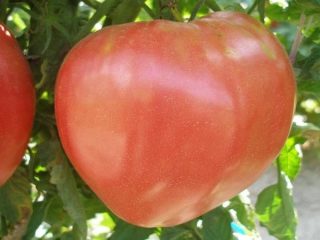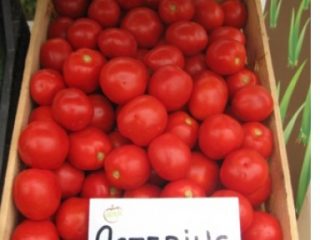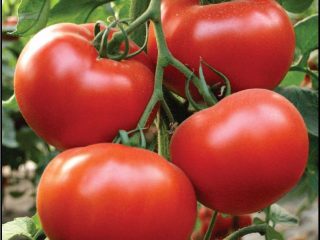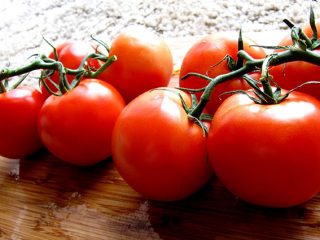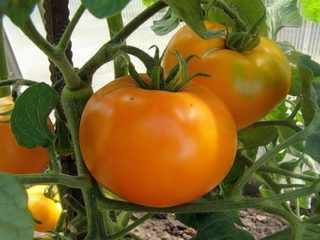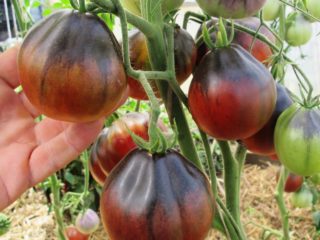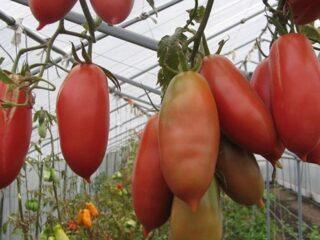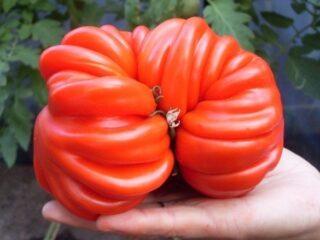Content
Tomato Youth can be used for personal purposes and for sale on the market. It brings a large harvest of marketable and tasty fruits. The characteristics of the variety allow us to judge the rapid ripening period, thanks to which you can enjoy juicy tomatoes already in mid-summer.
History of selection
The Molodezhny variety is not included in the unified State Register of Breeding Achievements of the Russian Federation. It has become widespread in Ukraine, where it is grown in film greenhouses. There it consistently brings a bountiful harvest. Russian gardeners are also showing interest in it, as evidenced by reviews.

Most vegetable growers characterize the tomato as reliable and very promising
Description and characteristics of the tomato variety Molodezhny
Tomato variety Molodezhny grows as a low, moderately spreading bush. The length of the central stem does not exceed 60 cm. The plant is strong, with a powerful root system. The foliage is average. The leaf blades of the Youth tomato are not very wrinkled, small in size, green in color.Inflorescences are simple, yellow.
The peculiarity of Molodezhny tomatoes is their round-oval shape and intense red hue. The weight of each vegetable varies from 80 to 150 g. The pulp has a rich sweet taste, the texture is elastic, fleshy and juicy. The skin is durable and glossy.

There are practically no voids or seeds inside the fruits of Molodezhny tomatoes, so nothing interferes with enjoying their taste
Ripening and fruiting
Tomato variety Molodezhny is an early ripening crop. The growing season lasts 80-90 days. Ripe tomatoes are harvested from June to August.
Tomato yield Youth
The Molodezhny variety is characterized by high yields. Its productivity from one bush is about 5 kg.
Resistance to adverse factors
Gardeners note the plasticity of the variety and its ability to set fruit under sudden temperature changes. However, the Molodezhny tomato shows the best performance in the greenhouse.
In what regions is it grown?
The Molodezhny variety is not very resistant to cold, so it is better to cultivate it in open ground in the middle zone and southern regions. The crop is successfully grown in the northern regions, but only in greenhouses.
Methods of application
Tomato Youth is universal in cooking. The fruits of the variety are consumed fresh, and are also used for making pasta, ketchup, and saturated juices. They are marketable, transportable and shelf-stable, making them suitable for sale.Consumer demand for these tomatoes is always stable.
Advantages and disadvantages
Those gardeners who have already grown this tomato note its resistance to late blight. It is also worth highlighting the early ripeness of the variety, which allows you to enjoy ripe tomatoes in the summer.

The plant does not require tying to a support
- high productivity;
- friendly fruiting;
- adaptability;
- excellent taste characteristics;
- ease of care;
- suitability for whole-fruit canning.
Minuses:
- during the ripening process it loses its taste;
- demands on soil fertility.
How to plant
From the moment of sowing tomato seedlings to planting in the ground, 60 to 70 days pass. Approximately 1.5 weeks before planting, it is recommended to begin hardening off the seedlings. This is especially important if you want to grow crops in open ground. To do this, plants are taken out into the loggia or street every day for two hours, gradually increasing the time.
Tomatoes are planted at air and soil temperatures of +12-15 °C. They are transferred to the greenhouse in mid-May. The most important thing is that the risk of return frosts has passed, since the seedlings die from the cold.
The soil for planting tomatoes is prepared in advance. It should be fertile, loose and slightly acidic (pH 5.5-6.7). Good predecessors for Molodezhny tomatoes are beans, root vegetables, cucumbers, cabbage and onions. Planting is carried out according to the 40x60 cm pattern. The recesses are formed slightly larger than the root ball.

The most suitable hole depth is 15-20 cm
Care instructions
The bushes of this variety are low-growing, with a compact crown and a powerful base. They can be grown without a garter and still reap a large harvest. But during the fruiting period, it is recommended to tie the stems to stakes to make caring for the crop easier.
A young tomato needs regular feeding. For the first time, fertilizers are applied 20 days after planting in a permanent place. To do this, use a nutrient solution based on nitrophoska 1 tbsp. l., water 10 l and liquid mullein 0.5 l. Fertilizer consumption is 250-300 ml for each plant. The bushes are fed with this mixture after watering.
At the stage of the appearance of ovaries, it is advisable to feed the tomatoes with a solution of potassium sulfate 1 tbsp. l., superphosphate 1 tsp. and water 10 liters. A homemade composition can be replaced with a ready-made one. For example, Senor Tomato works well.

A liter of solution is spent on one bush
When watering, water is poured near the root. Its frequency depends on the climate and weather of the area. But usually the soil is moistened as the top 8 cm layer dries. To retain moisture in the soil and protect the roots from the sun, it is necessary to mulch the ridges.

Plantings are periodically loosened, and also weeded to remove weeds and to prevent diseases.
Disease and pest control
The youth variety of tomatoes has very strong immunity. He practically does not get sick during the entire growing season. Tomatoes have time to ripen before late blight begins to develop. But the variety still needs preventive measures.To protect tomato bushes from diseases and pests, it is necessary to treat with the biological product Fitosporin or Bordeaux mixture 1%.
Conclusion
The Youth tomato is loved by many gardeners due to its ease of care, high yield and sweet taste of the fruit. The variety is usually cultivated in greenhouses. The fruits have an elastic texture and durable skin; they store well, and housewives use them in a variety of recipes.
Reviews from summer residents about the Molodezhny tomato

